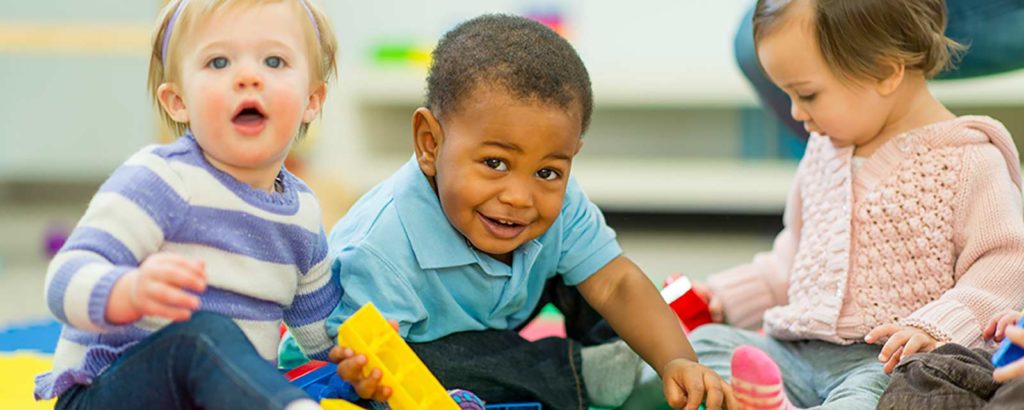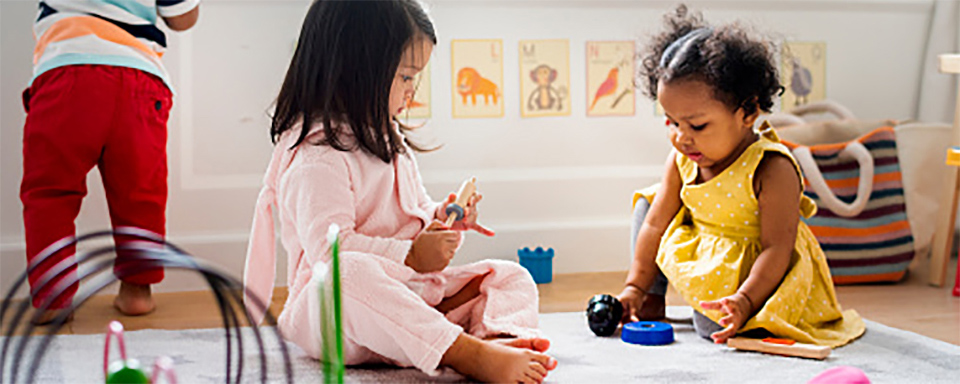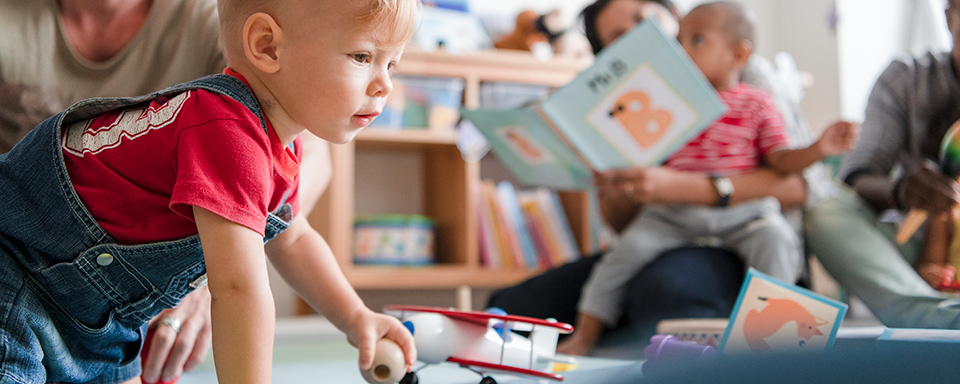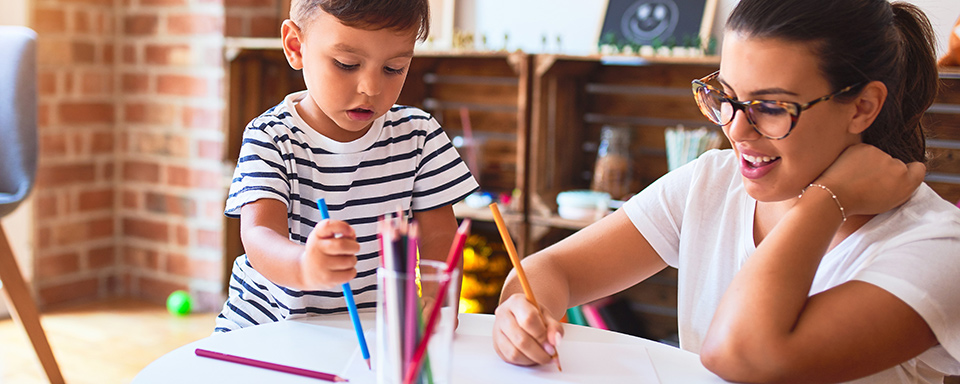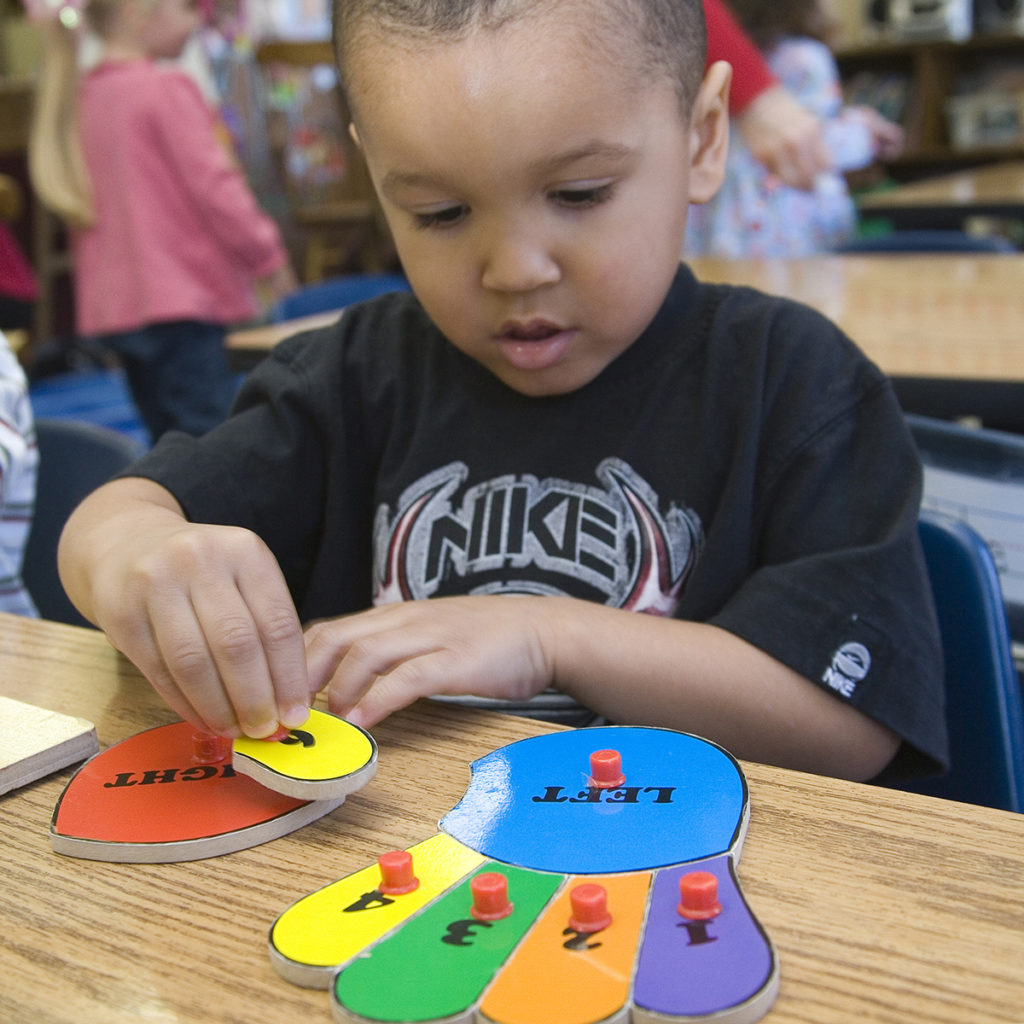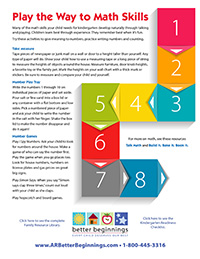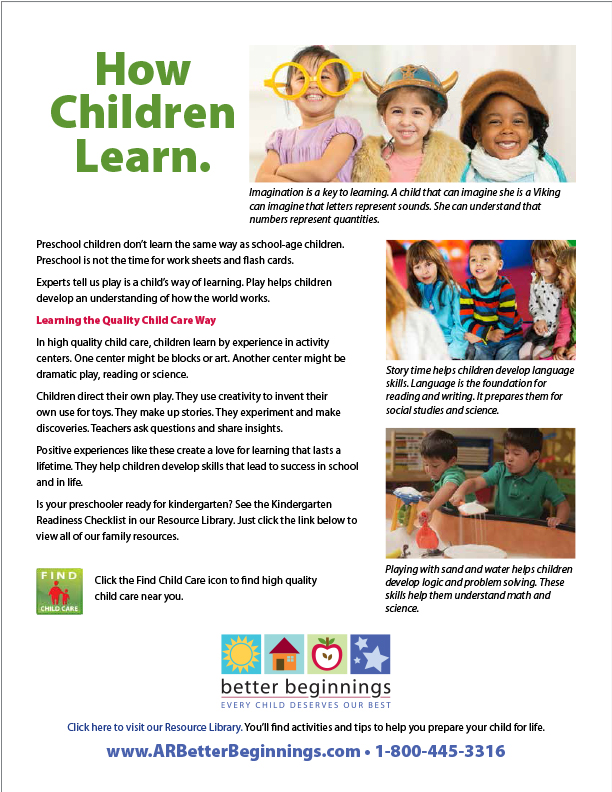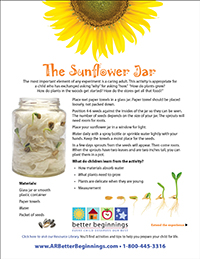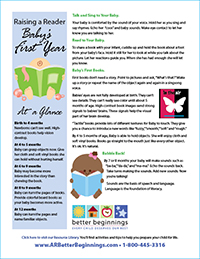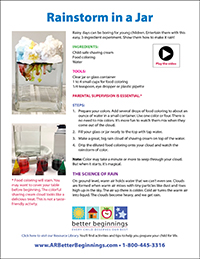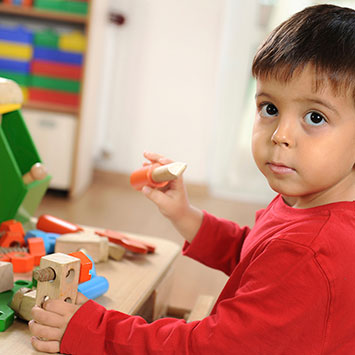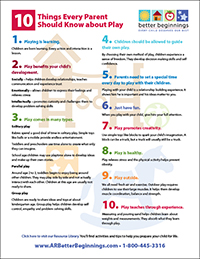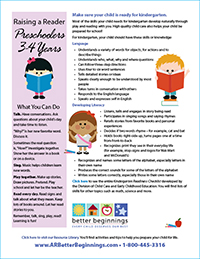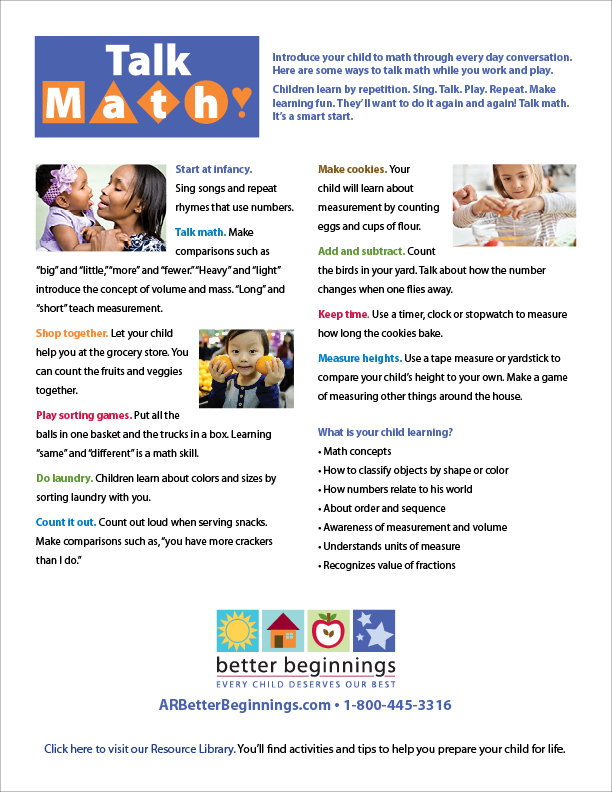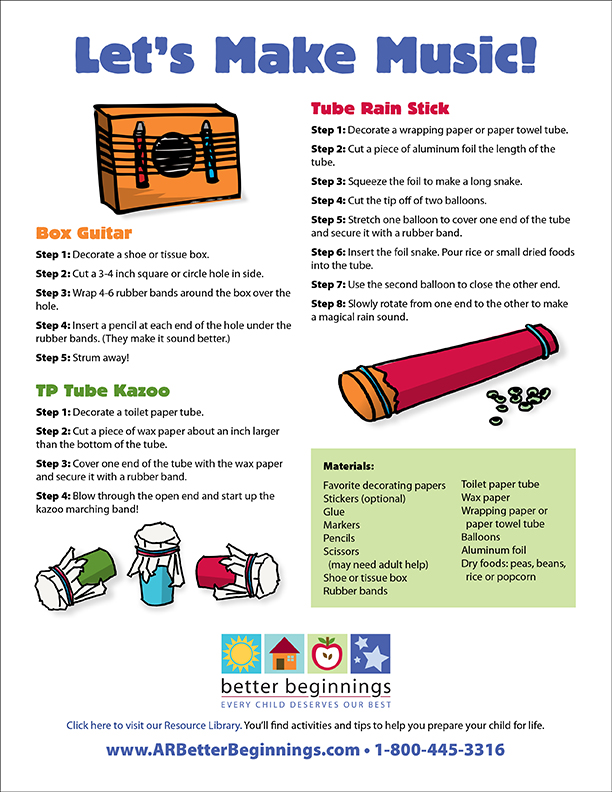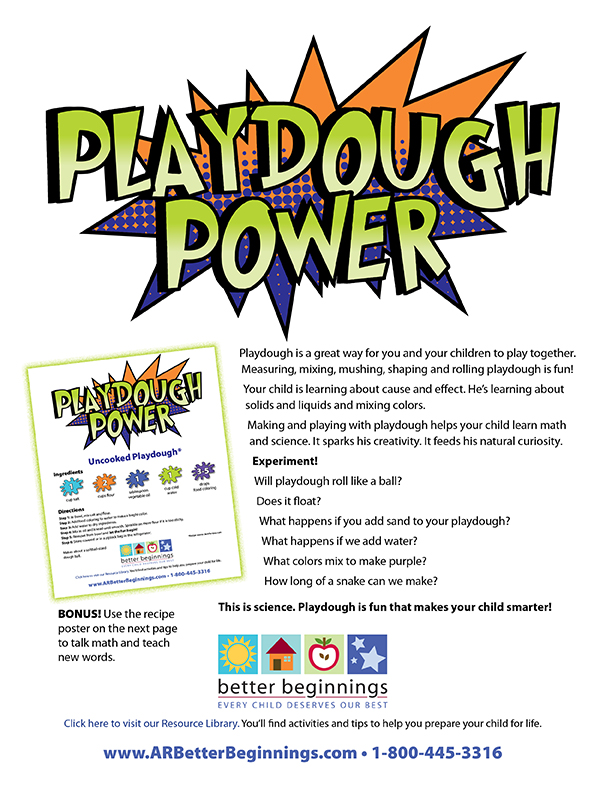- About Us
Better Beginnings ’ goal is to make sure all children in Arkansas have access to quality child care and the opportunity to start kindergarten with a solid foundation from which to continue their education.
- Parents
& Families- Star-Rated Quality
- How to Choose Child Care
- Ages & Stages
- Keeping My Child Healthy
- Family Resource Library
- Family Buzz Newsletter
- Sign up for Buzz Newsletter
Research tells us children
are born learning.
They learn through play and by experience.
Better Beginnings early childhood educators prepare children for kindergarten with positive experiences, high-quality learning environments and research-based curriculum. - Providers
& Teachers- Provider Tools
- Provider Calls
- Curriculum & Supplements
- Provider Buzz Newsletter
- Sign up for the Buzz Newsletter
- Level One Star Kit
- Level Two Star Kit
- Level Three Star Kit
- Provider Rules and Regulations
As a child care provider, you have a crucial role to play in children’s bright futures.
The Better Beginnings initiative is a good way to start. - Trending
A child’s early life experiences and early childhood education set the foundation for future life experiences.
The goal of Better Beginnings outreach is to create awareness of that fact. We do that through provider and family tools, with media that demonstrates what those tools look like in high-quality child care settings and in the home.Español
Videos
- Español

Parents & Families
Home » Parents & Families » Family Resource Library » Play is Learning » Play is Learning Parent Tool

